Books I Loved in 2021
TL;DR: I read 30 books in 2021, and 13 of those were reading to my youngest, John. In 2020, our habit of me reading to him at bedtime faltered a bit, as he was getting a bit older. But he was absolutely in...

Image credit: Sara
I read 30 books in 2021, and 13 of those were reading to my youngest, John. In 2020, our habit of me reading to him at bedtime faltered a bit, as he was getting a bit older. But he was absolutely in love with Breath of the Wild, the open-world Legend of Zelda game. And I realized that he was old enough to appreciate the Hobbit, and went into full sales mode, channeling the grandpa from The Princess Bride:
John, you’re going to love this book, it’s got everything you like in Breath of the Wild: Adventures, dwarves, wizards, goblins, magic rings, and even a dragon!
He was into it, especially once I told him that after we read the book we could watch the movies. Over the year, we read The Hobbit, The Lord of the Rings, the first few Harry Potter books, and the Hitchhiker’s Guide books, and after each book, we watched the movie based on it. It was absolutely great.
For my purposes, I read several books that I really loved:
-
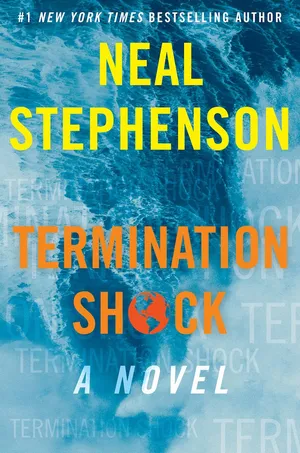
Termination Shock by Neal Stephenson
A new Neal Stephenson book always floats to the top of my reading list. But this one I particularly enjoyed. Something I love about Neal is that you can always tell what he’s interested in or learning about while he’s writing. Most of his books are pretty clear explorations of particular concepts: Snowcrash had cyberspace, Diamond Age had nanotechnology, Cryptonomicon had cryptography, etc. More recently, he wrote two books that I had mixed opinions on. Reamde, which felt like a Michael Crichton-style airport thriller, and Fall, which is a sequel, and explores the concepts of cryonics and simulated intelligence and the afterlife. They were good but also felt like a departure from his other books I love that are more about really big wild ideas like Anathem and Seveneves.
This book is firmly in the “airport thriller” style, but man did I love it. It opens with the Queen of the Netherlands crashing her airplane in Texas because a swarm of 30-50 feral hogs has swarmed the runway. She’s in Texas to see an Elon Musk-type guy announce his plan to solve global warming by firing a massive gun that shoots sulfur into the atmosphere. It’s a roller coaster ride, and great fun. My only complaint is that it ends a bit abruptly, but I hope that just means he’s set up for a sequel starring these characters.
-
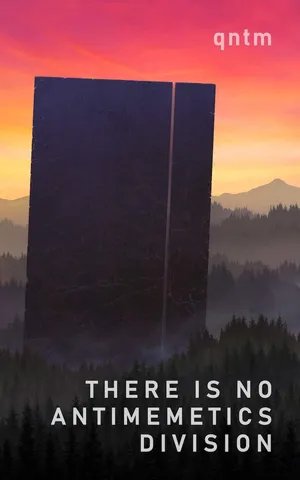
There Is No Antimemetics Division by Sam Hughes
How do you contain something you can’t record or remember? How do you fight a war against an enemy with effortless, perfect camouflage, when you can never even know that you’re at war? Welcome to the Antimemetics Division. No, this is not your first day.
That blurb got me hooked immediately, and I loved every minute of this book. It’s set in the SCP Universe, a collaborative writing exercise where authors explore a government agency called the SCP Foundation, which tracks down X-Files-style paranormal objects that need “Special Containment Procedures.” (If this sounds familiar, it’s because the excellent video game Control was heavily inspired by the SCP Universe.)
This collection of short stories follows the Antimemetic Division of the SCP Foundation, which deals with SCPs that have “antimemetic” properties, meaning “an idea with self-censoring properties; an idea which, by its intrinsic nature, discourages or prevents people from spreading it.” Some of these are relatively harmless, such as the massive structure in the forest behind the building that no one remembers is there. Some are entities that actively hunt you once you become aware of them.
This book is great fun, and I can’t recommend it strongly enough, especially if you enjoyed playing Control. (In fact, the author wrote their own crossover fanfic where the main character of this book meets the main character of the game.)
-
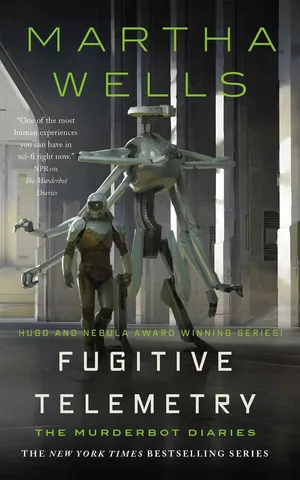
Fugitive Telemetry by Martha Wells
This being the sixth book in the excellent Murderbot series (and second full-length novel), it’s hard to discuss too much without spoilers, but the short version is that Murderbot has returned to Preservation Station, and finds a dead body. It gets pulled into the murder investigation and must continue its least favorite activity: talking to humans.
It’s a detective story starring Murderbot, with all the acerbic snark you’d expect, and it absolutely delivers on every level. (Side note, I really need to make a “Books I Love” post about Murderbot, it’s easily in my top 5 favorite series of all time.)
-
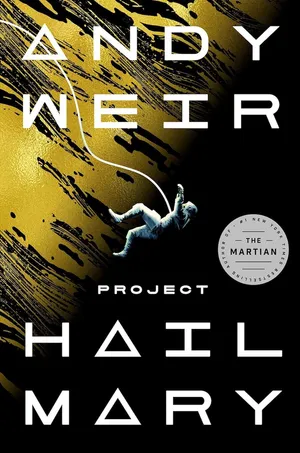
Project Hail Mary by Andy Weir
Ryland Grace is the sole survivor on a desperate, last-chance mission—and if he fails, humanity and the Earth itself will perish. Except that right now, he doesn’t know that. He can’t even remember his own name, let alone the nature of his assignment or how to complete it.
I absolutely loved this book. It opens with a high school science teacher waking up on a spaceship in the middle of nowhere, the rest of the crew dead in their cryo-pods, and no memory of how or why he’s here. The tone is very similar to the Martian, with absolute joy taken in science and solving seemingly impossible problems.
(Next paragraph contains minor spoilers)
It’s also one of the best first contact stories I’ve ever read. Without giving away too many details, Ryland meets an alien and has to learn how to communicate and work together with it, and the odd-couple relationship between them is both hilarious and authentic feeling.
-
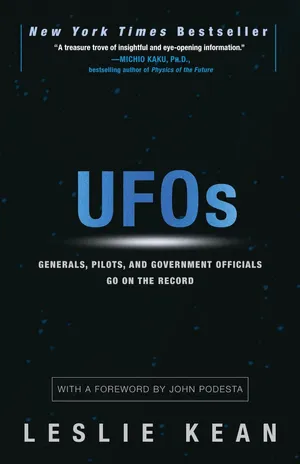
UFOs: Generals, Pilots and Goverment Officials Go On the Record by Leslie Kean
Over the last couple of years, my interest in UFOs has grown exponentially, driven especially by the 2017 New York Times article exposing the Pentagon’s secret UFO program, the 2021 Pentagon report to Congress confirming that UFOs are real, and the 2019-20 series Unidentified, which follows Lou Elizondo, the former head of the Pentagon’s UFO program.
This book, by Leslie Kean, one of the writers of the 2017 New York Times article, is a strictly nuts-and-bolts book that limits itself to testimony from highly credible sources like military pilots, and high-ranking officials like generals and government officials.
It lays out a compelling and well-researched case that UFOs are real, they have a marked interest in our military (and especially nuclear) facilities, and no one knows who’s behind them. It neatly addresses the “only cranks and crazy people see UFOs” criticism.
-
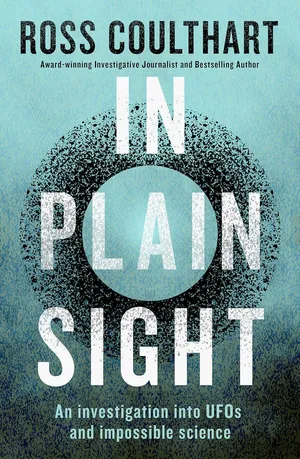
In Plain Sight by Ross Coulthart
Like Leslie Kean, Ross Coulthart is an investigative journalist, and I appreciated that both of them came to the subject with a healthy degree of skepticism. Coulthart admits that he mostly set out to write the book out of stubbornness because his editors over the years had told him “we don’t write about UFOs.”
He says he expected a quick investigation that would quickly allow him to debunk the whole affair. He was highly skeptical that such a secret could be kept, and assumed it was all “swamp gas.”
But the more he dug, the more convincing evidence he found. I love this book for being a great introduction to the topic for someone who’s coming in suspiciously or unsure about whether there’s anything to it. And being a new book means it’s up-to-date. It came out shortly before the 2021 Pentagon report, and feels like a very “here’s what you need to know to understand why it’s a big deal that the government is admitting UFOs are real.”